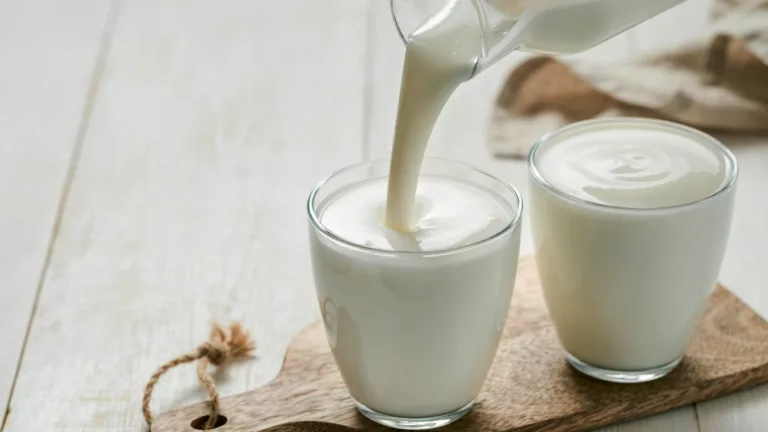Best Anti-Inflammatory Tea for Arthritis Relief That Actually Works
If you’ve ever found yourself cradling a steaming mug of tea after a long day of joint stiffness or swelling, you’re not alone. As a Rheumatology nurse practitioner who’s seen it all—from early morning joint flares to late-night pain flare-ups—I know firsthand how much people with arthritis crave natural remedies that *actually help*. And yes, there are days when I find myself recommending the best anti-inflammatory tea for arthritis relief just as often as I adjust medications. Because let’s face it—sometimes, the little things like a good tea can make a big difference in how we feel.
What Makes a Tea “Anti-Inflammatory” Anyway?

When people ask me, “Tarra, is there really a tea that helps with arthritis?” I get it—skepticism is fair. But here’s the thing: some teas are more than just warm, cozy drinks. They’re packed with plant compounds—polyphenols, flavonoids, and essential oils—that have real, science-backed anti-inflammatory properties.
Inflammation is at the heart of many arthritis conditions, whether it’s osteoarthritis quietly eroding cartilage over time or rheumatoid arthritis firing up your immune system like it’s on a caffeine binge. The right tea can calm some of that chaos—not replace your treatment, of course—but be a gentle sidekick to your main arthritis regimen.
The Science Behind Sipping
Here’s a fun fact I love sharing with patients: studies have shown that certain herbal teas can suppress inflammatory markers like CRP (C-reactive protein) and IL-6. Translation? These brews may help tone down some of the biological noise behind your joint pain. And no, we’re not talking about one cup working miracles. But when sipped regularly, these teas can absolutely be part of your toolkit.
- Turmeric Tea: This golden-hued powerhouse is rich in curcumin, known for inhibiting inflammatory enzymes.
- Ginger Tea: Gingerol, its active compound, is a natural anti-inflammatory agent with some muscle behind it.
- Green Tea: Contains EGCG (epigallocatechin gallate), which has shown promise in reducing joint degeneration.
My Go-To Teas in Clinical Practice

Now, let me get a little personal here. I’ve had patients—real people juggling joint pain and fatigue—who swear by their evening cup of turmeric-ginger blend. In fact, I often recommend trying combinations like:
- Turmeric + Ginger: A dynamic duo for taming inflammation. Add a pinch of black pepper to enhance curcumin absorption.
- Green Tea + Lemon: Helps with both inflammation and digestion. Great during the day when you need a light, refreshing lift.
- Chamomile + Cinnamon: While chamomile is known more for relaxation, cinnamon adds anti-inflammatory support. Plus, it tastes like comfort in a cup.
One of my long-term RA patients once told me her tea ritual is as vital to her wellness as her methotrexate injections. That stuck with me. It’s not just about what’s in the tea—it’s the act of brewing, sipping, slowing down. That, too, is healing.
Quality Matters (Big Time)
Quick tip: not all teas are created equal. If you’re grabbing some dusty tea bags from the back of your pantry, you might not be getting the anti-inflammatory punch you’re hoping for. I always suggest looking for:
- Organic options to avoid pesticide exposure.
- Loose-leaf teas over standard bagged ones—they’re often fresher and more potent.
- Reputable brands that clearly list ingredients and sourcing details.
Even better? Try making your own! Grate fresh turmeric or ginger, simmer it in water, and add a touch of honey and lemon. It’s delicious, and you control exactly what goes in.
Why I Keep a Tea Drawer at Work

True story: in my clinic, I have a drawer stuffed with various teas. When patients come in anxious, flaring, or just wiped out, sometimes we talk while sipping a calming tea together. It’s a small thing, but it’s a human thing. And let’s be real—healing is never just physical. It’s mental, emotional, and spiritual too. A warm cup of the best anti-inflammatory tea for arthritis relief isn’t going to cure your condition, but it might make it a little easier to manage. And that’s worth sipping for.
Herbal Teas Backed by Science (and Patients)

When patients ask me what herbal teas I trust, I always go back to what I’ve seen work—and what science backs up. Look, I’m not about hype. If I’m going to recommend a tea for arthritis pain, I want to know it does more than just smell good. Over the years, I’ve noticed certain teas consistently get the thumbs-up from both studies and my own clinic experience.
Let’s talk about a few MVPs in the best anti-inflammatory tea for arthritis relief lineup:
1. Boswellia Tea (Indian Frankincense)
This one doesn’t get as much attention as turmeric or green tea, but it’s a hidden gem. Boswellia has been used in Ayurvedic medicine for centuries to fight inflammation. Some clinical trials even suggest it may rival NSAIDs when it comes to easing joint pain—without the stomach upset.
One of my patients with psoriatic arthritis swears by it. She brews it twice a day and says it helps with both stiffness and her mood. That’s the kind of whole-body win I love seeing.
2. Willow Bark Tea
Often referred to as “nature’s aspirin,” willow bark contains salicin, which the body converts to salicylic acid (yup, the same family as aspirin). While I always advise caution with this one—especially if you’re already on blood thinners or anti-inflammatory meds—it can be incredibly effective when used safely and occasionally.
- Reduces inflammation and pain
- Best for osteoarthritis flare-ups
- Not recommended for long-term daily use
3. Devil’s Claw Root Tea
Sounds ominous, right? But this South African herb is actually a favorite of mine when managing chronic joint conditions like osteoarthritis and lower back pain. Some studies show it may help reduce pain levels similarly to over-the-counter meds. The flavor is a bit earthy—think root-heavy—but a touch of honey balances it out beautifully.
What to Know Before You Brew

Okay, real talk: just because a tea is “natural” doesn’t mean it’s automatically safe or right for everyone. I’ve had patients accidentally trigger side effects by mixing herbal teas with their prescriptions. That’s why I always recommend doing a quick double-check—especially if you’re taking immunosuppressants, anticoagulants, or other meds for your arthritis.
Here are a few rules of thumb I share with my patients:
- Start slow: Try one tea at a time and observe how your body reacts over a few days.
- Talk to your provider: Especially if you’re managing more than just arthritis. Herbal teas can interact with thyroid meds, blood pressure drugs, or diabetes treatments.
- Watch for quality: I’ll say it again—go for brands that are transparent about their sourcing and ingredients. Your joints deserve the good stuff.
My Personal Routine (Because I Walk the Talk)
Let me pull back the curtain for a moment. When I’m feeling the wear and tear of being on my feet all day in clinic, I brew a strong cup of turmeric and ginger with a splash of oat milk and cinnamon. It’s comforting, delicious, and I swear it takes the edge off my end-of-day aches. No, I don’t have arthritis—but working in this field for years has made me hyperaware of my own inflammation triggers.
Every time I share that routine with a patient, I feel like I’m passing along a little piece of self-care that’s grounded in both tradition and science.
Functional Teas You Can Try Today

So, if you’re wondering where to start—especially if all this tea talk has you more confused than inspired—here’s a beginner-friendly cheat sheet of what to try based on your symptoms:
- For general joint pain: Turmeric-Ginger or Boswellia
- For stiffness and swelling: Green Tea or Willow Bark
- For fatigue with pain: Ginseng + Green Tea blend (but watch for caffeine)
- For nighttime relief: Chamomile + Cinnamon or Lavender + Lemon Balm
These blends can become a comforting ritual—something that helps you reclaim control over your day, sip by sip. And let’s be honest: that little mental shift? That’s healing too.
Don’t Forget the Extras
Here’s something I tell every single arthritis patient: tea alone won’t do the job. But paired with movement, nutrition, rest, and the right medical treatment plan, it can absolutely be part of your daily defense strategy.
If you can make tea part of your “feel good” toolbox—along with stretching, warm baths, or even journaling your symptoms—you’re building a system of support. And that’s exactly what managing arthritis is all about: stacking small wins for bigger relief.
Blending Teas into Your Daily Arthritis Routine

One thing I’ve learned over years of working with arthritis patients is this: success comes from routines, not one-off fixes. That applies to everything—meds, movement, mindset, and yes, even your cup of tea. If you’re going to try adding the best anti-inflammatory tea for arthritis relief into your day, make it part of something you can actually stick to.
Some of my patients find that morning is best—especially if they’re dealing with joint stiffness that makes it hard to get going. Others prefer a calming nighttime brew to help wind down. Personally, I like splitting my tea habit: a gentle green tea mid-morning and a warm turmeric-ginger combo in the evening.
Daily Anti-Inflammatory Tea Routine Ideas
- Morning: Green tea with lemon for a clean start and inflammation support.
- Afternoon: Ginger + peppermint tea to soothe inflammation and support digestion.
- Evening: Turmeric tea with oat milk and cinnamon, perfect before bed to ease soreness.
It doesn’t have to be complicated—just consistent. And here’s a tip: use a pretty mug you love, or a designated “arthritis wellness” tumbler to make it feel like a small ritual. These things matter more than we think.
Tips for Maximizing Tea Benefits

Okay, so you’ve found a tea you love and you’re sipping regularly—awesome. But let’s level up. There are simple ways to get more mileage from your tea experience:
- Add black pepper to turmeric tea to enhance curcumin absorption. Just a pinch will do.
- Use fresh ginger root instead of powdered for stronger anti-inflammatory effects.
- Brew longer: Herbal teas benefit from a longer steep time—think 10–15 minutes instead of 3–5.
- Hydration counts: Tea counts toward your daily fluid intake. And staying hydrated helps keep joints lubricated and flushes out toxins.
One of my longtime lupus patients told me she sets a “tea timer” reminder on her phone, not just to brew—but to pause, breathe, and check in with her body. That’s the power of slowing down with intention.
Can You Combine Teas for Arthritis?
Absolutely. In fact, I often encourage patients to experiment (safely, of course). Blending teas can be both effective and fun. Here are a few safe pairings I’ve seen great results with:
- Turmeric + Ginger + Cinnamon: Great for overall joint inflammation and blood sugar balance.
- Green Tea + Tulsi (Holy Basil): A calming mix that helps with stress-induced flares.
- Chamomile + Lavender + Lemon Balm: Not the strongest anti-inflammatory combo, but wonderful for sleep, which plays a huge role in symptom control.
Just keep in mind—if you’re ever unsure, check with your rheumatologist or pharmacist to confirm there are no interactions. Safety first, always.
Other Natural Allies That Pair Well with Tea
Because I’d be doing you a disservice if I said tea is the whole picture. To get the best results, you want a holistic approach. Tea is just one player in your team.
- Anti-inflammatory diet: Think fatty fish, berries, leafy greens, olive oil, and nuts.
- Supplements: Omega-3s, vitamin D, magnesium—check with your provider before adding anything.
- Gentle movement: Tai chi, yoga, aquatic therapy, or just daily walks. Motion is lotion, as we say in clinic!
- Sleep and stress management: Huge for inflammation levels. Meditation, therapy, even journaling your symptoms can help.
I’ve had so many patients tell me that once they started combining small changes, they began to feel more like themselves again. And that, truly, is the goal.
Final Thoughts from a Rheumatology Insider
At the end of the day, I’m not saying a cup of tea will change your diagnosis. But I am saying that small, consistent, thoughtful habits can absolutely change how you live with arthritis. The best anti-inflammatory tea for arthritis relief isn’t about hype—it’s about feeling better one cup at a time. And from one human to another, that counts for a lot.
So if you’re starting your tea journey today, welcome. Brew slowly, sip mindfully, and pay attention to how your body responds. You’re the expert on your experience—and I’m cheering you on from here.
Helpful References
Disclaimer
This article is for informational purposes only and not intended as medical advice. Always consult your healthcare provider before starting any new herbal treatment, especially if you are managing a chronic condition or taking prescription medications.

Camellia Wulansari is a dedicated Medical Assistant at a local clinic and a passionate health writer at Healthusias.com. With years of hands-on experience in patient care and a deep interest in preventive medicine, she bridges the gap between clinical knowledge and accessible health information. Camellia specializes in writing about digestive health, chronic conditions like GERD and hypertension, respiratory issues, and autoimmune diseases, aiming to empower readers with practical, easy-to-understand insights. When she’s not assisting patients or writing, you’ll find her enjoying quiet mornings with coffee and a medical journal in hand—or jamming to her favorite metal band, Lamb of God.







